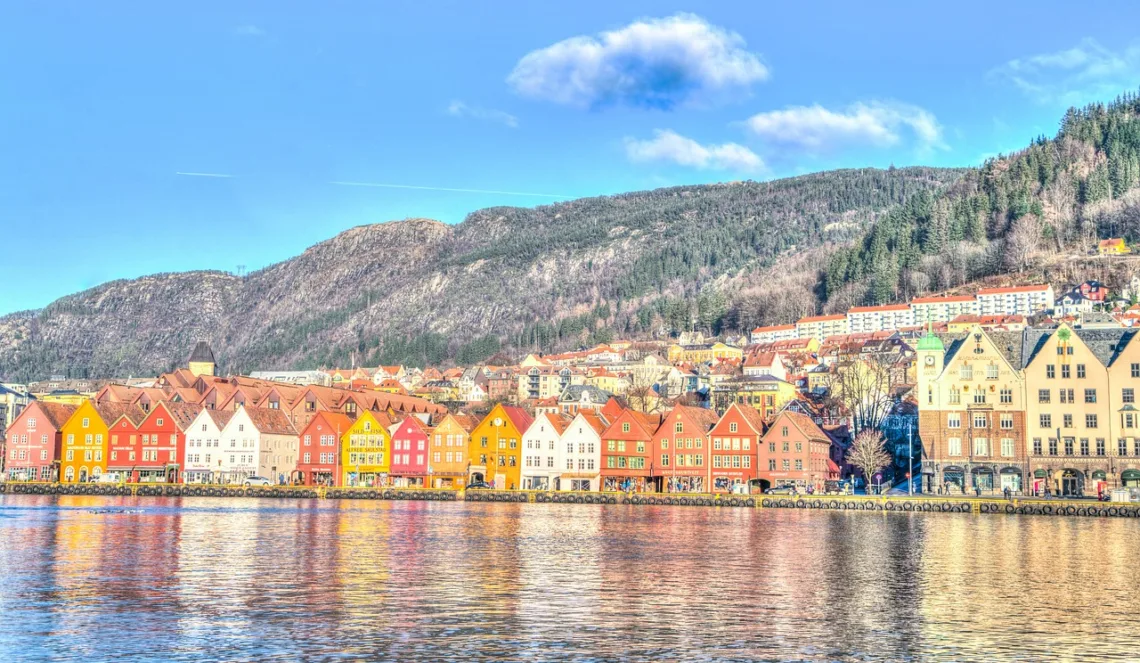It has less to do with supporting the weak and more to do with getting what’s owed.
Being a fully-fledged Norwegian patriot who celebrates our national day religiously, the deterioration of the social democracy is painful to behold. Since Norway became wealthy on oil in the ’60s, it’s prided itself on its commitment to the weak and ill-fated and has been put on a pedestal by every left-leaning candidate everywhere.
Little do they know that in 2022, 52 percent of the Norwegian population received government financial aid, with 10.5 percent of the population on disability leave, a number that is estimated to increase by about 2.5 percent each year. The rate in psychiatric disability is rising drastically in the youngest, while pensioners sell their hard-earned houses to afford ever higher taxations on lower-than-promised retirement payouts.
Norwegians have never learned the responsibility needed to make sure that there is petrol in the car in the first place.
In 2012, there was an uproar in Norwegian news media because of a new phenomenon called “å nave,” which is slang for someone using social welfare. The rules allowed for under-25-year-olds to take a year off after high school to “chill and figure things out” while receiving financial aid from the Norwegian Labour and Welfare Administration (NAV). The criteria for receiving aid hadn’t changed, but the attitude toward applying for it slowly had.
Addressing this shift, the conservative wing pressured to reform the rules in 2018. If only the problem was the lack of stringency, the prognosis would be a good one. The teenagers surveyed, however, reported unashamedly a belief to have the right to money from the state. The sense of entitlement had already taken such strong roots in the young Norwegians that the river found a new path around the rock. The system that now requires a diagnosis to receive aid suddenly sees a long line of people with diagnoses claiming disability.
This year, governmental financial aid for 18- to 29-year-olds is at an all-time high, three times more than that in 1995. Among the Gen Zers on welfare, 63 percent claim to have psychiatric problems. They claim to have exactly the type of symptoms subjectively diagnosed by a health care worker whose natural proclivity is to have sympathy for them — not hired as a guard dog but trained to see suffering.
Treating psychiatric disorders is a fiendishly difficult and long-running process; writing an application arguing for a patient’s general reduced capacity at least gives a feeling of having done something. Not to mention that a psychiatrist might struggle with feeling responsible for any worsening of the patient’s condition, should the young pleading person be without income.
In Norway, every psychiatrist is responsible for the list of patients counseled by around six social workers, psychologists, or nurses. They decide whether to fill in a disability application, only having the psychiatrist sign between meetings and sparing it no more than a glance. The social service employees report feeling that they have no place to disagree with the psychiatrists (who sign) about granting disability leave, and it causes no small amount of tension.
It’s almost unbelievable that in the country renowned for its ski enthusiasm and outdoorsy Viking appearance, fatigue and tiredness should be the most common explanation for disability — unless we are seeing in real time the consequence of going against human nature for generations.
We don’t have to go so far as to call those applying for disability “malingerers.” When at a night club after a long day, tiredness will abate with the contagious excitement from dancers. Entering a classroom where half of the students are asleep will have your eyes drooping in a second. Evidence for psychosocial influences on common psychiatric disorders is stronger than neurobiological evidence to date. We all require a certain environment around us in order to not be suffocated by our worst impulses, which are always looming and must be kept at bay.
Left-wing politicians tend to liken getting short-term disability aid to driving on the motorway and waiting for a petrol refill on the hard shoulder. The problem is that Norwegians have never learned the responsibility needed to make sure that there is petrol in the car in the first place. Now, the hard shoulder is packed with cars waiting to have their refill — as is evident in the fact that 81 percent of those who receive short-term disability leave go on to receive lifelong disability pay.
The same applies to the treatment of psychiatric disorders: Leaving your everyday structure does little to improve mental vigor. On the contrary, being forced to fight another day, to prove yourself stronger than you thought to meet the world head on, provides the best therapy. When 50 percent of Norwegians develop a psychiatric disorder in the course of their life, incentives become important. Why should you try so hard to overcome fatigue when the payoff is taxed three times, but rescue should you opt to stay in bed is a certainty?
Generosity toward the truly ill-fated was once the bedrock of these social programs. But with half the population applying for aid and disability, we gradually see every individual sufferer receiving less. Hence, the zealous commitment to social services and taxation has less to do with supporting the weak and more to do with getting what’s owed. Now the state is treated like a parent whose services are taken for granted. And the friend on disability leave is the sibling who’s getting something you’re not.
Hannah Spier, M.D. is a Norwegian psychiatrist based in Switzerland, the author of the Substack Psychobabble, and the mother of three small children. She has a degree in psychotherapy from the University of Zürich.
Hannah Spier hosts the podcast ‘What Should I tell My Daughter?’ twice a month at Apple Podcast and Spotify.
This article was previously published at Spectator.org on May 23rd 2023, and re-published at Document News with the authors kind permission.


